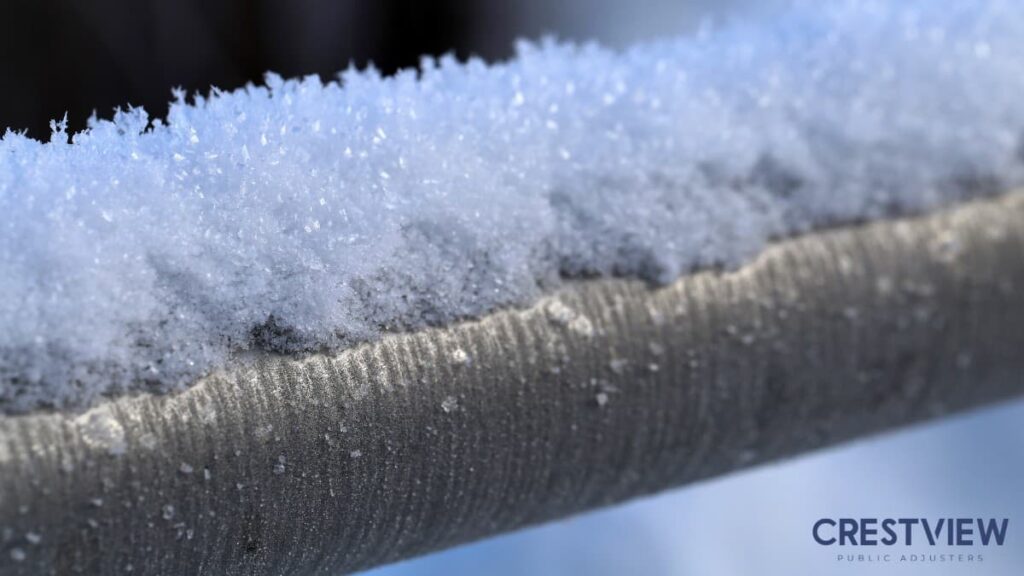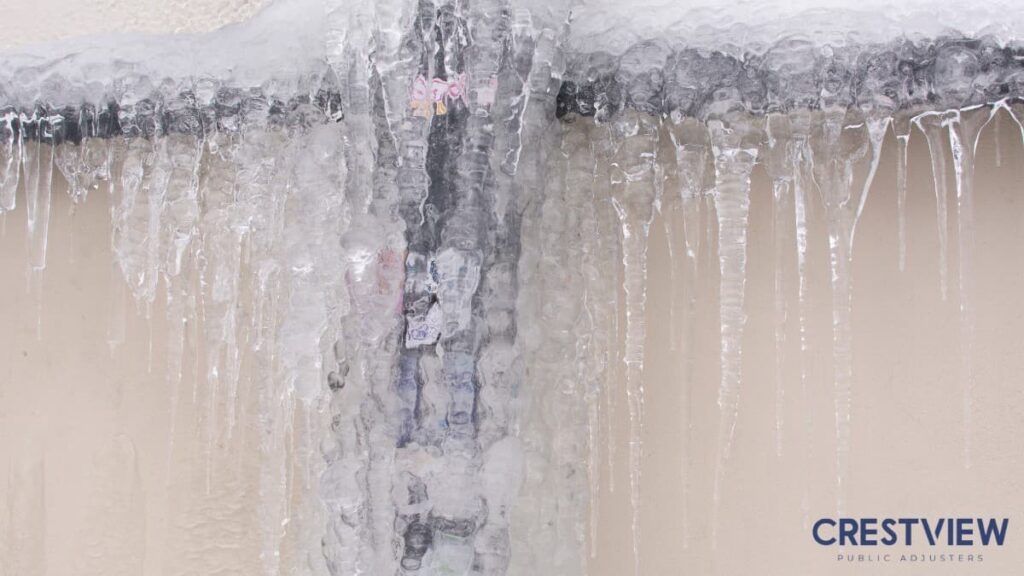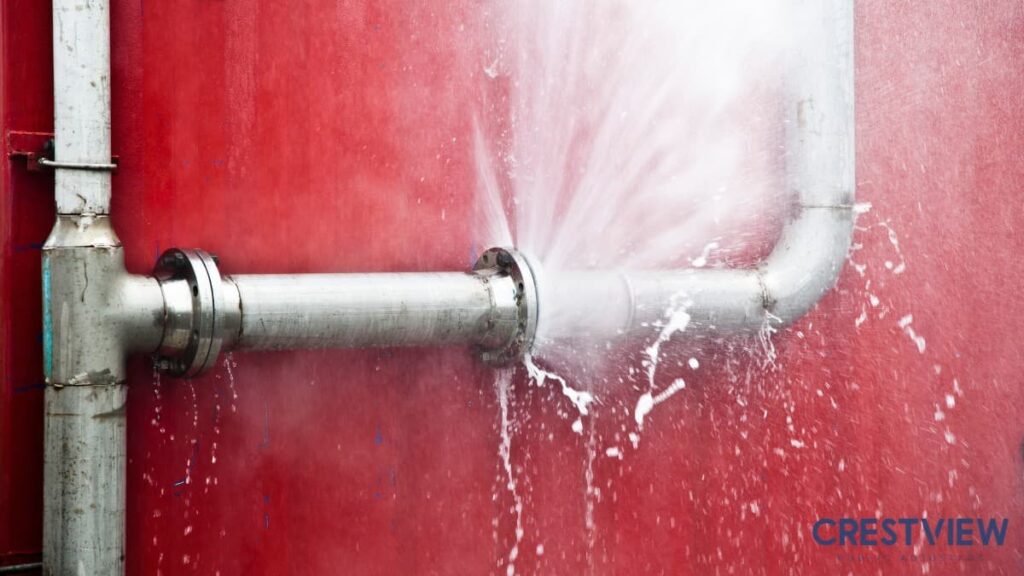Key Points:
- Proper insulation is key to preventing frozen pipes.
- Identify vulnerable pipes in your home and take precautions early.
- Use heating cables and other tools for added protection.

Winter weather can be brutal, and frozen pipes are a headache homeowners know all too well. Every year, water damage and freezing pipes cost insurers a staggering $15-$20 billion, with roughly 1 in 50 insured homes filing claims. While some water damage stems from poor maintenance or the usual wear and tear, winter is when these issues really hit hard.
The good news is that with the right precautions and a bit of proactive care, you can prevent your pipes from freezing and avoid costly damage. Let’s dive into practical, actionable steps on how to prevent pipes from freezing, so you can keep your home safe throughout the winter months.
How to Prevent Pipes From Freezing
To prevent pipes from freezing, insulating your pipes is crucial. Make sure to check the vulnerable areas of your home where pipes are exposed to cold air, and take steps to protect them with insulation or heat tape.
Why Are Some Pipes More Vulnerable to Freezing?
Understanding why certain pipes freeze more easily can help you prioritize which areas to address. Pipes that are located in unheated areas, such as basements, attics, crawl spaces, and garages, are particularly susceptible. If your pipes are in exterior walls or near windows, they may also be at risk. When temperatures dip below freezing, the water inside the pipes begins to freeze, causing pressure to build up. This pressure can eventually lead to bursting, and once the weather warms up again, you could be facing extensive water damage.
To avoid this, start by identifying any exposed pipes in unheated parts of your home. A few simple preventive measures can save you from major repair costs later on.
How to Insulate Pipes to Prevent Freezing
One of the most effective ways to prevent pipes from freezing is proper insulation. Insulating your pipes ensures that cold air cannot directly impact them, reducing the chances of freezing. Here are a few tips on how to prevent pipes from freezing through insulation:
- Pipe Insulation Foam: Wrap your pipes with foam insulation, which is inexpensive and easy to install. This is especially useful for pipes running along exterior walls or in unheated areas.
- Heat Tape: For extreme cold, heat tape can be wrapped around pipes to provide additional warmth. This is a good option for high-risk areas like basements or crawl spaces.
- Fiberglass Insulation: If your pipes are in attics or crawl spaces, consider installing fiberglass batt insulation between them and the outside cold.
By insulating your pipes, you create a barrier that helps to keep the water flowing, even in freezing temperatures.

How to Keep Pipes Warm in Cold Weather
Beyond insulation, there are other strategies you can employ to keep your pipes warm and avoid freezing. Here are some proactive steps:
- Keep Cabinets Open: If you have pipes under sinks in exterior walls, leave the cabinet doors open to allow warmer air from your home to circulate around the pipes.
- Drip Faucets: Letting your faucets drip slightly during extremely cold temperatures can help to relieve pressure in the pipes. It also allows water to keep moving, which can prevent freezing.
- Space Heaters: Using a space heater in rooms with pipes exposed to the cold can also be effective. Just be cautious of fire hazards and ensure heaters are kept at a safe distance from flammable materials.
- Maintain a Steady Temperature: Keep your home at a consistent temperature, even if you’re away. Avoid letting the temperature drop below 55°F (13°C), especially at night, when temperatures are most likely to fall to freezing.
Are There Any Specific Areas to Target First?
Not all pipes are created equal. Some areas are more prone to freezing than others, so it’s important to focus your attention on high-risk zones. Here’s where to start:
- Exposed Outdoor Pipes: Any pipe that runs through uninsulated walls or directly to the outside is at high risk.
- Attic and Basement Pipes: Areas that are poorly heated or ventilated can leave pipes exposed to cold.
- Pipes in Crawl Spaces: The cool, uninsulated environment of a crawl space can lead to freezing pipes, especially if they are located along the exterior walls.
By paying attention to these areas and taking preventative action, you’ll reduce the risk of a frozen pipe disaster.

How to Monitor for Freezing Pipes and Avoid Burst Pipes
Even with preventive measures in place, it’s important to monitor your pipes during extreme cold spells. If you suspect that a pipe is frozen, you can take a few actions to check before it bursts:
- Listen for Strange Sounds: When water starts to freeze, you may hear odd sounds coming from the pipe. If you hear gurgling or hammering noises, it’s time to check the pipes.
- Touch the Pipes: Pipes that are frozen will feel cold to the touch. If you notice a section of the pipe that’s colder than others, it’s likely frozen.
- Check Water Pressure: If the water pressure drops unexpectedly, it could be an indication that there is a blockage in the pipe due to freezing.
If you do suspect frozen pipes, act quickly. Thaw them out carefully using a hairdryer or heat tape, but never use an open flame.
FAQ
What is the best way to insulate my pipes?
The most effective way to insulate pipes is by using foam insulation or heat tape, especially for pipes in unheated spaces like basements or attics.
Can I prevent frozen pipes by leaving the water running?
Yes, slightly dripping water from faucets during extremely cold weather helps relieve pressure in the pipes and can keep them from freezing.
Is it necessary to heat my crawl space to prevent frozen pipes?
While it’s not necessary to heat the entire crawl space, insulating the pipes and using space heaters in high-risk areas can be effective in preventing freezing.
Protect Your Property from Frozen Pipe Damage—Act Now!
Frozen pipes can cause significant damage to your home, but with the right preventive measures, you can avoid costly repairs. If you are facing frozen pipe damage, you don’t have to handle it alone. Contact Crestview, your trusted public adjusters in New York, Florida, and New Jersey. With our expertise, we can help you navigate the claims process and ensure that you receive the compensation you deserve for any water damage. Don’t wait until it’s too late—reach out today and protect your property.

